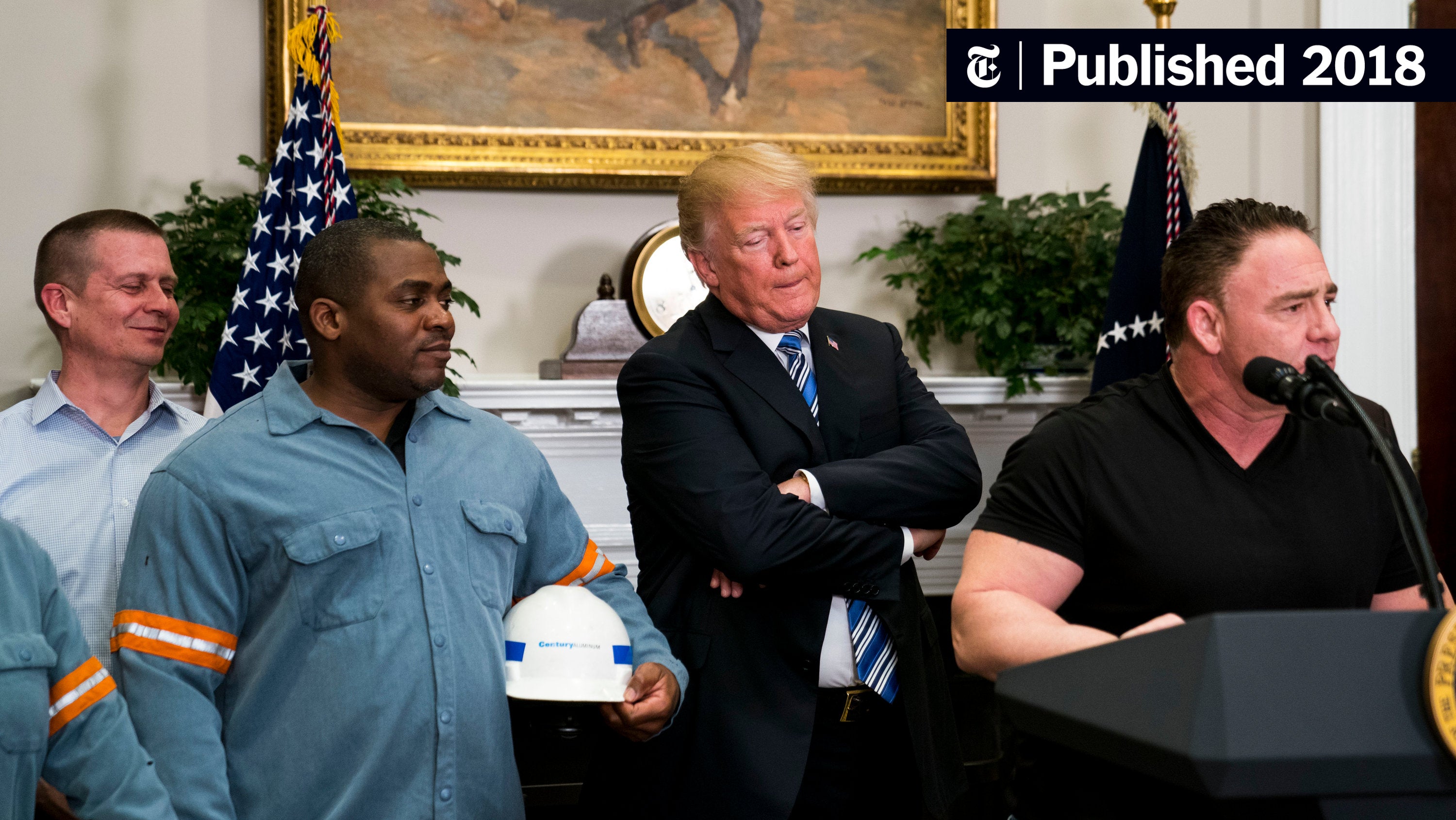Trump Defends Tariffs Against Judicial Review

Table of Contents
The Basis of Trump's Tariff Policy
Trump's tariff policy, a cornerstone of his "America First" agenda, was largely based on Section 301 of the Trade Act of 1974. This provision allows the president to take action against foreign countries engaging in unfair trade practices or violating international trade agreements. Trump frequently cited national security concerns and unfair trade practices as justification for his import tariffs.
Section 301 of the Trade Act of 1974: The Legal Foundation (or Lack Thereof?)
Section 301 provided the legal framework (however debated) for Trump’s actions. He used it to target various countries and goods, claiming they posed threats to national security or engaged in unfair trade practices such as dumping and intellectual property theft.
- Specific Targets: The tariffs targeted numerous countries, including China, the European Union, and Mexico, impacting goods ranging from steel and aluminum to solar panels and washing machines.
- Economic Rationale (Claimed): The administration argued that these tariffs were necessary to protect American industries from unfair competition, address trade imbalances, and ultimately boost domestic manufacturing and employment.
- Criticisms: Critics argued that the tariffs were economically damaging, leading to higher prices for consumers, retaliatory tariffs from other countries, and disruptions to global supply chains. The effectiveness of the tariffs in achieving their stated goals was also heavily debated.
Legal Challenges to Trump's Tariffs
The imposition of these sweeping tariffs immediately triggered a wave of legal challenges from businesses, industries, and even foreign governments. The core arguments centered on the constitutionality of the tariffs and their compatibility with international trade agreements.
Arguments Against the Tariffs: A Constitutional and International Dispute
Opponents argued that Trump’s use of Section 301 exceeded his constitutional authority and violated established international trade rules.
- Exceeding Presidential Authority: The lawsuits claimed that the president lacked the authority to impose tariffs solely based on broad national security concerns without specific Congressional authorization.
- Violation of WTO Rules: The tariffs were also challenged as violations of the World Trade Organization (WTO) agreements, leading to disputes and potential retaliatory measures from other WTO member countries.
- Harm to American Businesses and Consumers: Legal challenges highlighted the substantial harm inflicted on American businesses and consumers due to increased prices, reduced competitiveness, and disruptions to supply chains resulting from the tariffs.
Trump's Defense of His Tariffs: Presidential Power and National Security
The Trump administration vehemently defended its tariff policy, arguing that the president possessed broad authority in matters of national security and trade.
Presidential Power and National Security: A Justification Under Scrutiny
The core argument revolved around the president's inherent authority to protect national security, even if it meant overriding established trade rules and agreements.
- Trump's Statements: Trump frequently defended the tariffs as necessary to protect American jobs and national security, often framing them as a necessary response to unfair trade practices by other nations.
- Administration's Court Arguments: The administration's legal arguments emphasized the president's broad discretion in matters of national security and the need for flexibility in responding to evolving global trade dynamics.
- Counter-Arguments: Critics argued that the national security justification was overly broad and lacked sufficient evidence, effectively circumventing established legal processes and international agreements. They also questioned the misuse of presidential power to pursue economic goals under the guise of national security.
The Implications of the Legal Battle: Shaping Trade Policy and Presidential Power
The legal battles surrounding Trump's tariffs have profound implications for future trade policies and the scope of presidential power in trade matters.
Impact on Trade Policy and Presidential Power: A Lasting Legacy
The outcome of these legal challenges will significantly shape the landscape of future trade negotiations and the balance of power between the executive and legislative branches.
- Impact on Future Administrations: The precedents set by these cases will impact how future administrations approach trade policy, potentially influencing their willingness to use tariffs as a tool of economic or foreign policy.
- Uncertainty for Businesses: The ongoing legal uncertainty created a challenging environment for businesses involved in international trade, hindering investment and long-term planning.
- Rule of Law and Checks and Balances: The legal challenges underscored the crucial importance of maintaining checks and balances within the US government and upholding the rule of law in matters of trade and national security.
Current Status and Future Outlook: Where Do We Stand Now?
The legal battles surrounding Trump's tariffs are ongoing, with several cases still winding their way through the courts. While some challenges have been resolved, others remain, including the potential for Supreme Court review.
Where Things Stand Now: Ongoing Litigation and Potential Supreme Court Review
- Ongoing Litigation: Numerous lawsuits are still pending, challenging various aspects of Trump's tariff policies.
- Supreme Court Review: The possibility of Supreme Court review remains a significant factor, as a final ruling could establish landmark precedents with broad implications for trade policy.
- Future Outcomes: The future outcomes of these legal battles remain uncertain, but their impact on future trade policy and presidential power will be profound and long-lasting.
Conclusion: The Enduring Significance of Trump's Tariffs
The legal challenges to Trump's tariffs represent a significant turning point in American trade policy and a critical examination of presidential power. The arguments presented—from claims of national security to accusations of overreach—highlight the inherent tensions between executive action and judicial review in the realm of international trade. The ramifications extend far beyond the specific tariffs imposed, affecting the balance of power within the US government and setting precedents for future administrations. Stay updated on the ongoing legal battles surrounding Trump tariffs and their implications for the future of trade policy and presidential authority. The long-term consequences of this legal struggle are still unfolding, and understanding its intricacies is crucial for navigating the complex landscape of international trade in the years to come.

Featured Posts
-
 The Crucial Role Of Mental Health Awareness Insights From Dr Shradha Malik
May 02, 2025
The Crucial Role Of Mental Health Awareness Insights From Dr Shradha Malik
May 02, 2025 -
 Poppy Atkinson Manchester Community Mourns Young Football Fan
May 02, 2025
Poppy Atkinson Manchester Community Mourns Young Football Fan
May 02, 2025 -
 Daisy May Cooper Engaged To Boyfriend Anthony Huggins Confirmation And Details
May 02, 2025
Daisy May Cooper Engaged To Boyfriend Anthony Huggins Confirmation And Details
May 02, 2025 -
 Riot Platforms Inc Announces Waiver And Irrevocable Proxy In Press Release
May 02, 2025
Riot Platforms Inc Announces Waiver And Irrevocable Proxy In Press Release
May 02, 2025 -
 Facelift Fears Fan Backlash Over Celebritys Changed Appearance
May 02, 2025
Facelift Fears Fan Backlash Over Celebritys Changed Appearance
May 02, 2025
